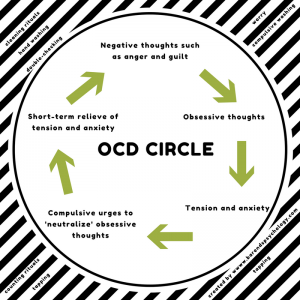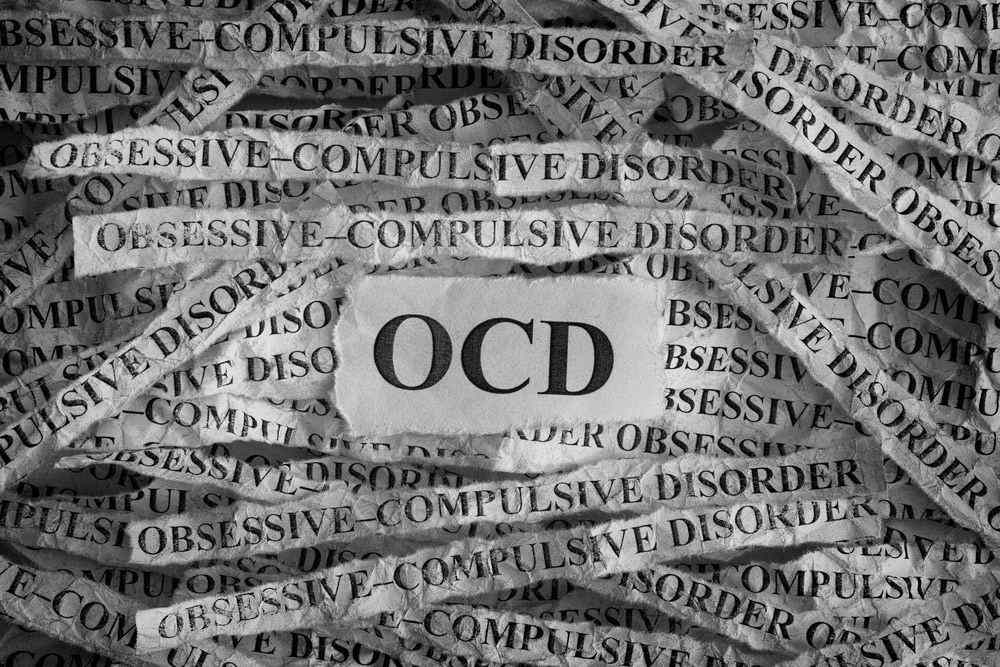Living with someone who has OCD can be difficult. Not only do you have to deal with the disorder itself, but you also have to deal with the anger that often comes along with it. This can be very challenging, especially if you don’t know how to handle it. In this blog post, we will discuss some tips for dealing with someone’s anger when they have OCD.
Contents
How Does It Feel When living with someone with OCD and Anger?

OCD, or obsessive-compulsive disorder, is a mental health condition that causes sufferers to fixate on certain thoughts or behaviors. People with OCD often engage in repetitive behaviors, such as washing their hands or checking things over and over again. They may also have intrusive thoughts that cause them anxiety.
Some people with OCD also have a co-occurring condition called intermittent explosive disorder or IED. This disorder is characterized by episodes of anger or violence that are out of proportion to the situation. People with IEDs may lash out at loved ones, throw things, or become verbally abusive.
Tips To Deal
Living with a partner who has OCD and anger can be difficult. Here are some tips to help you deal with their anger:
Understanding their situation is a symptom of OCD
It is important to understand that your partner’s anger is a symptom of OCD. It is not personal and it is not directed at you. Their anger is a result of the anxiety and stress that comes with living with OCD.
Be patient
Dealing with OCD can be frustrating and overwhelming for your partner. It is important to be patient and understand that they are doing the best they can. And try not to take their anger personally.
Educate yourself about OCD
Learning about OCD can help you better understand your partner’s condition and how it affects them. This can make it easier for you to be patient and supportive. For instance, you may not realize that your partner’s anger is a symptom of their OCD. Once you understand this, it can be easier to respond in a way that is helpful rather than hurtful.
Offer support
Be a supportive partner and offer to help them with their OCD. This can include things like helping them to organize their things, providing moral support, or even just listening to them talk about their obsessions and fears. You can also help with things like making sure they stick to their treatment plan and keeping them accountable for their recovery.
Avoid being triggering
Be aware of the things that trigger your partner’s OCD and avoid them if possible. This can be difficult, but it is important to try to avoid anything that may make their symptoms worse.
Avoid getting into arguments
If your partner gets angry equickly it’s best to avoid getting into arguments with them. If you do find yourself in aa statement try to remain calm and avoid getting defensive.
Seek professional help
If your partner is struggling with OCD. Some many therapists and counselors specialize in helping people deal with OCD and its related symptoms. Professional help can provide you with the tools and support you need to cope with your partner’s OCD and anger in a healthy way.
Techniques that will help. It will include: the following
- Promote positive self-talk: One of the most important things you can do is to encourage your partner to talk to themselves positively. This means avoiding phrases like “I’m such a freak” or “I’m never going to be normal.” Instead, try to focus on the progress they’ve made and the things they’re doing to manage their OCD.
- Avoid avoidance: It can be tempting to want to avoid triggering situations or things that make your partner’s OCD worse. However, avoidance only reinforces the fear and anxiety associated with OCD. Help your partner face their fears head-on by encouraging them to engage in exposure and response prevention (ERP) therapy.
- Challenge negative thoughts: Negative thinking is a common symptom of OCD. Help your partner challenge their negative thoughts by asking them to provide evidence for their beliefs. For example, if they’re convinced that they’re going to fail a test, ask them what specifically leads them to believe this. Once they identify the evidence, you can help them to see how it may be inaccurate or distorted.
Encourage treatment
Encouraging your partner to seek treatment for OCD can be beneficial for both of you. If your partner is resistant to treatment, try to be understanding and patient. Be willing to offer support and assistance, but don’t try to force your partner into treatment.
It can be difficult to deal with a partner who has OCD, but it’s important to be understanding. Help them find healthy ways to cope with their anger, such as exercise or relaxation techniques. Remember that their disorder is not their fault, and they may not be able to help their behavior. If you can be patient and understanding, you’ll be able to help your partner through their OCD.
Things you should avoid with someone with OCD And Anger
There are a few things you should avoid with OCD and anger. They are as follows:
- Do not try to change them: You should not try to change your partner’s routine or the way they do things. This will only make them more frustrated and angry.
- Do not criticize: Avoid criticizing your partner. This will only make them feel more insecure and increase their anxiety levels.
- Do not be over-protective: Do not be over-protective of your partner. This will only make them feel suffocated and unable to cope with their problems.
- Do not be judgmental: Avoid being judgmental of your partner. This will only make them feel more self-conscious and increase their anxiety levels.
- Do not try to control them: You should not try to control your partner. This will only make them feel more frustrated and angry. Instead, try to offer support and understanding.
- Do not criticize your partner: This will only make them feel more insecure and worsen their condition.
- Do not belittle their feelings: This will only make them feel more worthless and increase their anxiety levels.
- Do not dismiss their concerns: This will only make them feel more disregarded and increase their anxiety levels.
- Show patience: Patience is key when living with a partner who has OCD. They may have good days and bad days, so it is important to be understanding and supportive.
- Do not make fun of them: This will only serve to further alienate your partner and make their condition worse.
- Avoid using ultimatums with them: This will only make your partner feel more pressured and anxious.
- Seek professional help if their anger is out of control: If your partner’s anger is out of control, it is important to seek professional help. This will ensure that they get the treatment and support they need to manage their condition.
If you can avoid these things, then you will be in a much better position to help your partner cope with their OCD and anger. Be supportive, understanding, and patient, and they will appreciate it immensely.
Conclusion
It may be concluded that living with someone with OCD and anger can be challenging, but it is possible to manage the situation effectively. It is important to remember that each person is different, and what works for one person may not work for another. However, the tips provided in this article can be useful in dealing with a partner’s OCD and anger. Additionally, it is important to seek professional help if the situation becomes unmanageable.
For further information and suggestions, please contact Therapy Mantra. We have a team of expert therapists and psychiatrists that can help you overcome this problem. Get in touch with us right away to learn more about our services. You may also make an online therapy session or download our free Android or iOS app.


